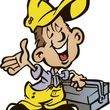We will ask you a few questions to match you with the best local pros
Where do you need the service?
HOT? A/C system doesn't work?
from this and similar pros
Servicing:
Phone number:
646-542-1676 PIN: 75033
Skills
-
HVAC Repair
About
A/C doesn't seem to be cooling? Big companies slapped you with a huge estimate? Give me a call and lets talk about it. There still may be life in your A/C system. Below are some common problems in residential units.
Keith
Refrigerant: The two most common problems with refrigerant are leaks and improper charge. When an air conditioner operates without the proper amount of refrigerant, several problems ensue. A low charge, for instance, will put undue stress on the compressor, causing additional strain that will cause it to eventually wear out, and could also cause the coils to freeze up, not to mention increasing energy consumption. Further, if your system leaks refrigerant by just 10 percent as it operates, it can increase energy costs by a whopping 20 percent. And leaks that are left unchecked will only get worse, contributing to even more electricity consumption and higher energy costs.
Dirt buildup: This type of problem greatly affects the overall performance of your air conditioning system, and it's generally the primary reason why regular maintenance is so important. Dirt buildup on the evaporator and condenser coils reduces their ability to release and absorb heat, which ultimately affects multiple air conditioner components: It can reduce the cooling capacity of an air conditioner by up to 30 percent, resulting in a less comfortable home; and it can increase electricity consumption by up to 37 percent. When coils are dirty, they create much higher internal operating pressures, and higher internal temperatures, which will ultimately cause the lubricant in the compressor to break down, and lead to a system failure.
Electrical failure: An air conditioner's compressor and fan controls are prone to wearing out, particularly if your air conditioner cycles on and off frequently, as these actions put a greater strain on the components within the A/C. Further, the delicate terminals and wires within an A/C can corrode, creating a domino effect of higher energy costs and decreased comfort.
Sensors: Your air conditioning system has a sensor that reads the home's internal temperature, and corresponds with the thermostat's controls. But if this sensor becomes dislodged or malfunctions, it won't accurately read the temperature. So while your home might be a stifling 80 degrees, the sensor might read a much lower temperature, and the A/C won't cycle on.
Drains: Because an air conditioner creates condensation during the cooling process, your system is manufactured to accommodate water vapor through a protective drainage system. If the drain becomes clogged, it can lead to mildew and mold problems, and worse, damage to your home if the clog isn't fixed immediately. A variety of actions can help you avoid drainage problems, including having your system tuned up regularly, installing a safety float switch, which will shut down the A/C when it senses that too much water has accumulated within the drain pain, and treating your system with an algaecide solution, to stop the growth of algae a common culprit of drainage problems.
